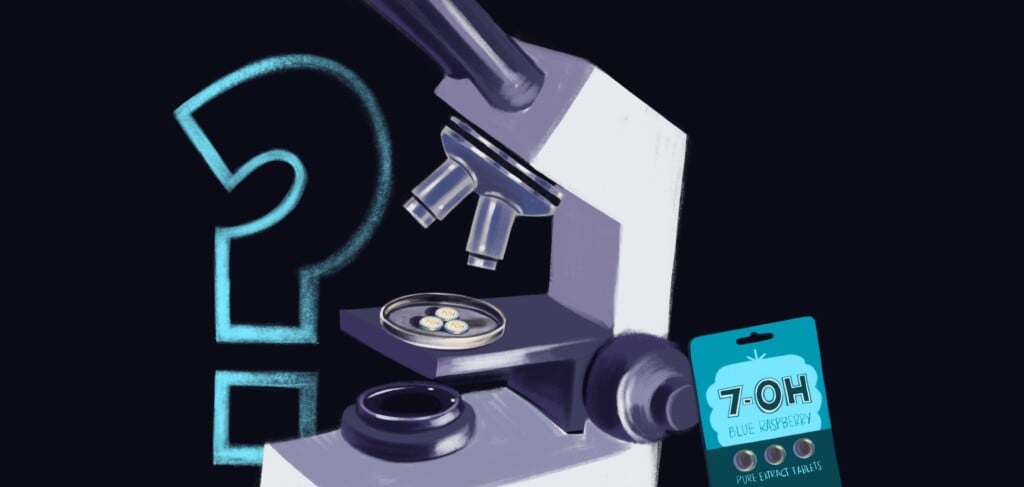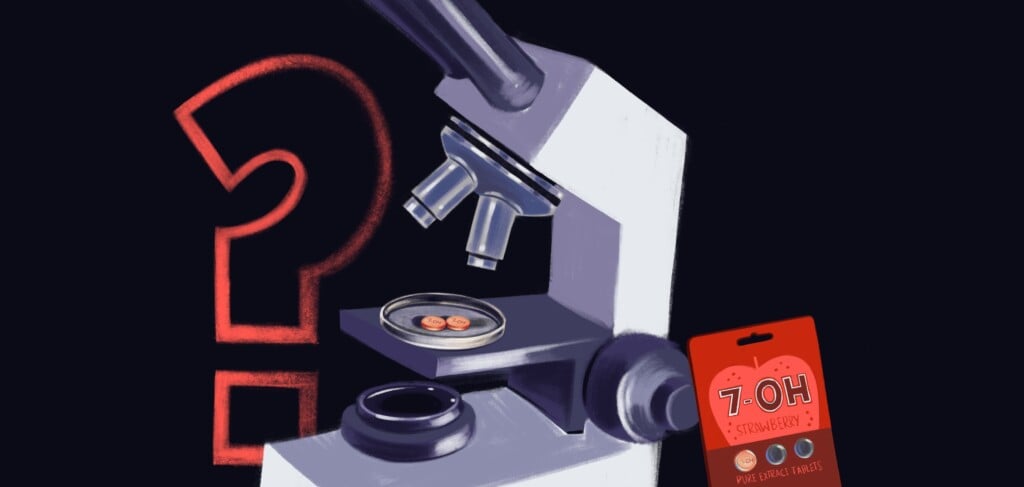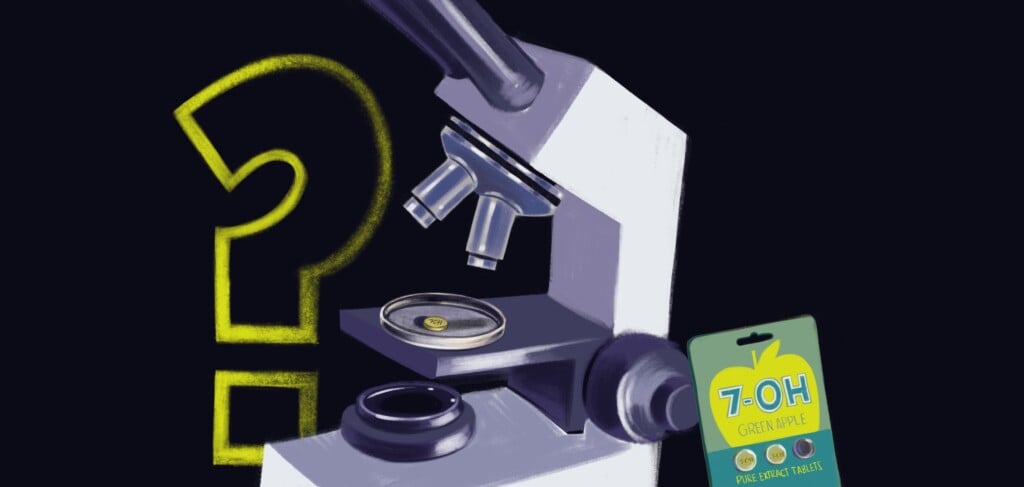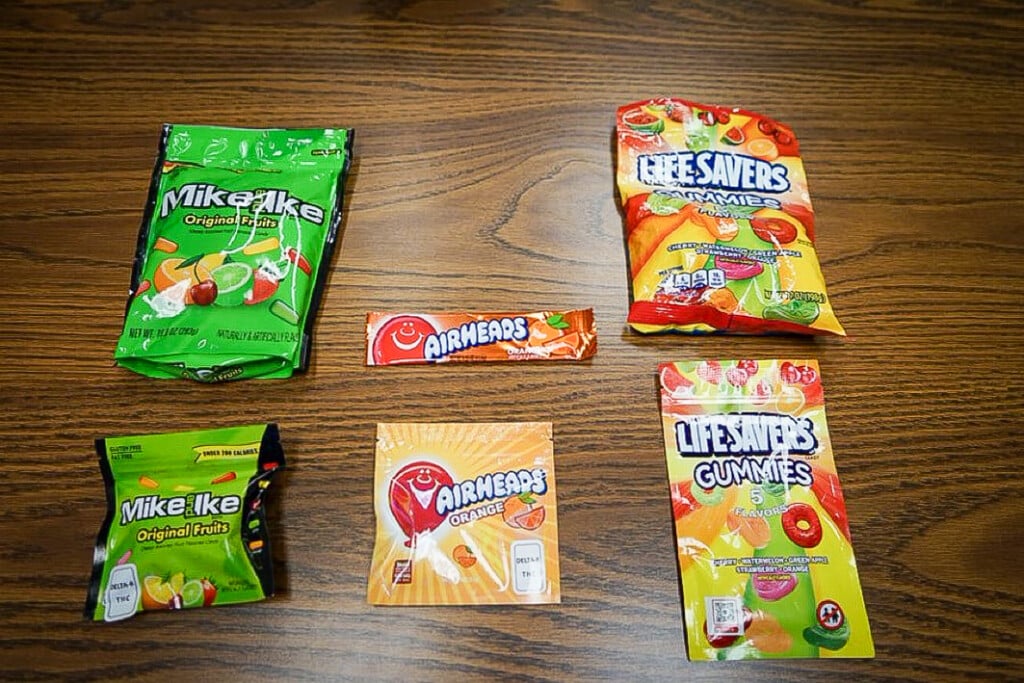MoCannTrade ‘Hemp Hoax Report’ exposes retailers in MO selling illegal, contaminated cannabis
Hemp stores, smoke shops, and gas stations around Missouri have been selling contaminated cannabis illegally for at least the last several months, according to the Missouri Cannabis Trade Association (MoCannTrade).
Yesterday, MoCannTrade released their “Hemp Hoax Report”, exposing different hemp and smoke shops around the state for selling cannabis products against state law. After collecting products from 55 different hemp, smoke shops, and gas stations throughout Missouri and sending them to three different licensed Missouri testing sites for evaluation, the results show that 96% of the products came back with THC or synthetic THC percentages higher than the legal limit.
Due to the 2018 Farm Bill, a loophole has allowed for hemp companies to sell products that contain 0.3% THCa. In turn, companies have been selling hemp flower that they claim to be testing at 0.3% THCa. When combusted, THCa turns into THC. But, 0.3% THC would still be too little of an amount for an individual to actually experience the psychoactive effects.
However, with no authoritative figure regulating the industry, companies around the state have been selling products that have tested at higher THCa percentages, according to the organization’s report.
Out of 55 tested products, only two came back with THC percentages that would be deemed legal to sell under the current law. Among the Kansas City-area companies that MoCannTrade included in this test are Gray Area Cannabis, Main Smoke Shop & Kratom, It’s A Dream, Dr. Smoke, Center Smoke Shop, Prohibition Cannabis, KC Kush, Herb Depot, Sacred Leaf, and Big Chiefs Kush—all of which failed to meet the legal criteria. The highest tested product was Sacred Leaf’s Green Peach Panama Punch sativa diamond 1g vape, which tested at 89.03% THC—296 times the legal limit.
MoCannTrade Executive Director Andrew Mullins says that he was not surprised at all by the findings.
“Everything that we had already assumed and everything that we had already seen somewhat anecdotally was fully proven out,” he says. “And in some cases, it’s even worse.”
Mullins mentions the fact that some of these products “really serve no other purpose but to potentially just harm folks,” indicating that there are unregulated products advertised with tens of thousands of mgTHC or other cannabinoids.
The two Missouri companies whose products passed MoCannTrade’s testing panels were Vapor Maven in Cameron and The Smoke Station in St. Louis. However, both companies had other products that tested above the legal THC threshold.
On top of the fact that these tests are coming back with percentages much higher than the legal limit for a product that is already so freely accessible to children and teens, MoCannTrade found that many of the products also contain contaminants.
Of the 55 tests, 16 of the products failed for toxins such as heavy metals, pesticides, and residual solvents. The Kansas City-based companies that failed for these toxic materials are Gray Area Cannabis, Dr. Smoke, KC Kush, and Herb Depot.
“That’s really scary stuff,” MoCannTrade Spokesperson Jack Cardetti says. “People literally don’t know what they’re putting in their bodies when they shop at these. These are all things that would have failed state tests.”
The report also includes other ways that the unregulated hemp industry has been an uphill battle for Missouri consumers and the regulated cannabis industry, such as manipulative marketing toward children, unlicensed retailers labeling themselves as dispensaries, avoiding the tax structure that the licensed cannabis industry falls under, and obtaining products from foreign countries.
Mullins says that this has been an ongoing effort of the organization since 2021, when they noticed retailers around the state selling these unregulated products. The collection of products and testing efforts began earlier this past summer.
“What we wanted to do was bring a significant amount of additional attention to the matter,” he says. “… For the most part, all of these retailers are perpetuating a gigantic hoax on Missouri parents, Missouri cannabis consumers, law enforcement, policy leaders, community leaders. They are, in fact, selling marijuana without a license and without any regulation, taxation whatsoever.”
The organization also created a Google map with other industry leaders that indicates “Black Market Dispensaries & Smoke Shops” around the state. Mullins says that they have accurately established locations around the state that are currently selling these unregulated products, with other hemp and smoke shops being continuously added to the layout.
“We know there are hundreds and hundreds and hundreds of more stores that are doing this, we just haven’t been able to proof them out to confidently put them on this map, but that map and the list keep growing,” he says.
All of this data comes on the heels of ongoing debates around how Missouri should regulate the hemp industry, with no true ending in sight.
The executive director says that his biggest concern regarding the unregulated hemp industry is the fact that there is not a concerted effort to put an end to these sales.
“It’s really in the hands of law enforcement leaders in Missouri to look at this for what it is,” Mullins says.
He is hopeful that this report eliminates some of the confusion that plagues the two industries.
“We’re very hopeful that this brings the necessary attention from community leaders, from law enforcement, from public safety and health officials to basically start to look at how this can be curtailed,” the executive director says.
Cardetti mentions that new Missouri Attorney General Catherine Hanaway is already putting this issue at the forefront of her future work, and that they have been in communication with her office about the report.
“The fact that kids can walk into gas stations and buy this stuff, it does not seem to be sitting well with her,” Cardetti says.
With these unappealing statistics now publicly available, conversations around regulating the industry are bound to heighten. Pending debates and litigation, MoCannTrade’s “Hemp Hoax Report” could be a big kicker in shaping Missouri’s perception of hemp products and influence the next best steps forward at the state level.






